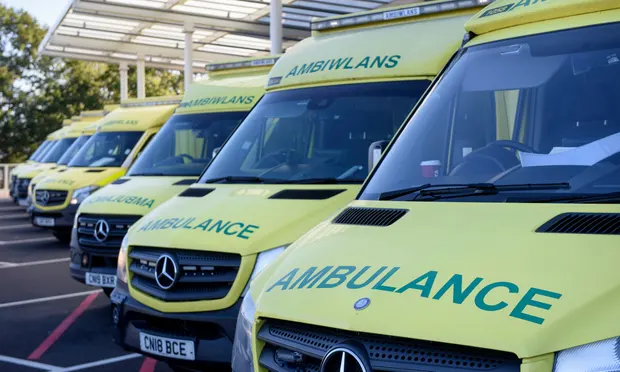In England and Wales, thousands of ambulance staff went out of business after the nurses’ strike, amid a pay rise and disagreement with working conditions.
In England, where annual inflation exceeds 10 percent, the unions, which rejected the government’s offer of a 4 percent salary increase to ambulance workers, started a strike.
Paramedics and call center officers also participated in the ambulance staff’s work stoppage. Due to the work stoppage, large numbers of health workers gathered in front of hospitals, calling for a “reasonable salary increase” to the government so that they could cover the rising costs of living.
MINISTER OF HEALTH ACCEPT THE UNIONS
In a statement to the BBC regarding the strike, British Health Minister Steve Barclay stated that the ambulance workers and paramedics’ strike came when the UK’s National Health System (NHS) was already facing significant pressure.
In addition, Barclay reported that unions refused to work with the government at the national level on how staff would respond to emergency calls during the walkout. Minister Barclay, in an earlier assessment of the strike decision, said, “The ambulance workers’ unions made a conscious choice to harm patients.” had been accused.
Unions representing ambulance and health workers noted that the personnel will be on duty in the most urgent cases. On the other hand, due to the action of ambulance workers, about 750 military personnel serving in the British army were assigned to act as ambulance drivers.
CALL FOR PREGNANTS TO MAKE AN ALTERNATIVE PLAN
Because of the work stoppage, only the most immediate life-threatening cases, such as a heart attack, will be given priority.
The NHS also advised that patients should call Emergency 999 in a life-threatening situation, otherwise use 111.
Due to the ambulance workers’ strike, hospitals have advised pregnant women who are in imminent delivery to make alternative plans to go to the hospital if they need it.
NURSES GO ON STRIKE FOR THE SECOND TIME
In England, Wales and Northern Ireland, tens of thousands of nurses went on a one-day strike for the second time yesterday.
Tens of thousands of nurses, who went on strike for a day on December 15 to demand a fair salary increase in the face of rising cost of living and inflation, launched a one-day strike for the second time after the government failed to reach a consensus.
The RCN (Royal College of Nursing) union, which has more than 300,000 members nationwide and represents nurses, is demanding a 19 percent salary increase, while the government argues that the demand cannot be met.
The union said nurses will go on strike again next month unless the government changes its approach.

